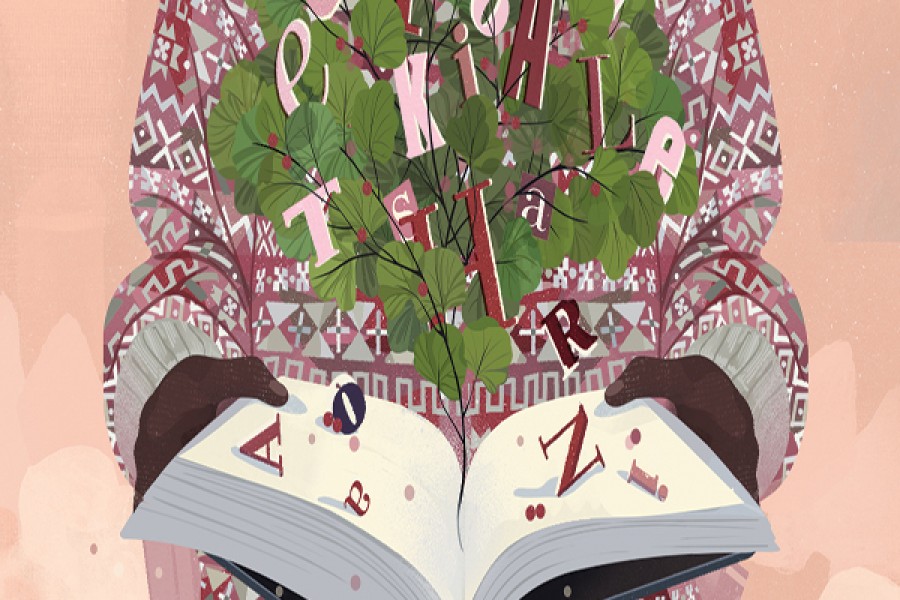Over the past year, Dora Malech and Jaida Griffin would get together to talk about writing. Malech is an assistant professor in the Johns Hopkins Writing Seminars; her poem "Party Games" was selected for The Best American Poetry 2015. Griffin is a Baltimore City high school student whom Malech met last year through Writers in Baltimore Schools, a nonprofit organization that provides writing instruction to low-income students. They consider themselves poetry buddies, writers at different stages of their development sharing skills and stories. "Jaida is so mature she doesn't need my mentorship," Malech says.
When they first started meeting up, though, Malech didn't envision them designing a course together.
But that's what they're doing: In spring 2016, they will work together on the Writing Seminars class Readings in Poetry: Of Late—Poetry & Social Justice, which will include both Hopkins undergraduates and Baltimore City high school students. Malech is one of three inaugural Engaged Faculty fellows chosen by the Homewood Student Affairs' Center for Social Concern for the 2015–16 academic year. The program supports collaborations between faculty and Baltimore grassroots organizations to offer undergraduate courses that embrace CBL—community-based learning—which aims to link classroom discussions with hands-on civic engagement.
Malech's class seeks to connect poetry to social justice activism. The other two fellows, Associate Professor Lester Spence in Political Science and assistant research scientist Daniel Pasciuti in Sociology, will tackle how their disciplines study housing issues, partnering with fair-housing advocate Right to Housing Alliance and the homelessness agency Housing Our Neighbors, respectively.
Center for Social Concern Associate Director Gia Grier McGinnis, the program's coordinator, says Hopkins undergraduates have been asking for more CBL opportunities for years. Over the summer, the fellows and their community partners met to discuss class plans and logistics—Where will classes meet? How will students get there?—conversations that continued throughout the fall semester. These meetings were a chance to discuss CBL methodology, but they also allowed scholars and community organizers to share how they frame and discuss issues. Those conversations, to Malech, are what all participants gain from the model: face-to-face time with people who have different experiences of the world. As personally rewarding as volunteering at a community event can be, the potential insight gained from that isn't the same as talking and debating ideas with people who, on account of whatever obstacle, don't end up in, say, Johns Hopkins undergraduate classes.
"I hope the class provides an opportunity for Hopkins and high school students to get to know each other," Malech says. They're not that far apart in age, she notes, and over her first year in Baltimore she's heard local high school students ask about what it's like to be in college—as well as Johns Hopkins students who want to know more about growing up in Baltimore. "Neither of those are homogeneous experiences," Malech says. "Those stories will be different for everybody, and I hope there is something to be gained from that."
Malech would like her impending class to provide that learning opportunity by exploring how poetry has been used as a voice for social justice, touching on examples from Eastern Europe under communism to the writing that came out of African- American political activism in the 1960s and '70s. Students will also engage with Baltimore's poetry community to see how literature and politics intersect.
Seeing how literary life and civic life come together for a small segment of Baltimore writers may seem like a small step, but social justice progresses in such incremental, sustained steps. The Engaged Faculty program fellows want to highlight what community members, students, and faculty members "are gaining from interaction, across generations or across communities," Malech says. "I believe literature and writing can start conversations and connect people across those perceived barriers."
Posted in Arts+Culture
Tagged writing seminars, poetry, baltimore city








